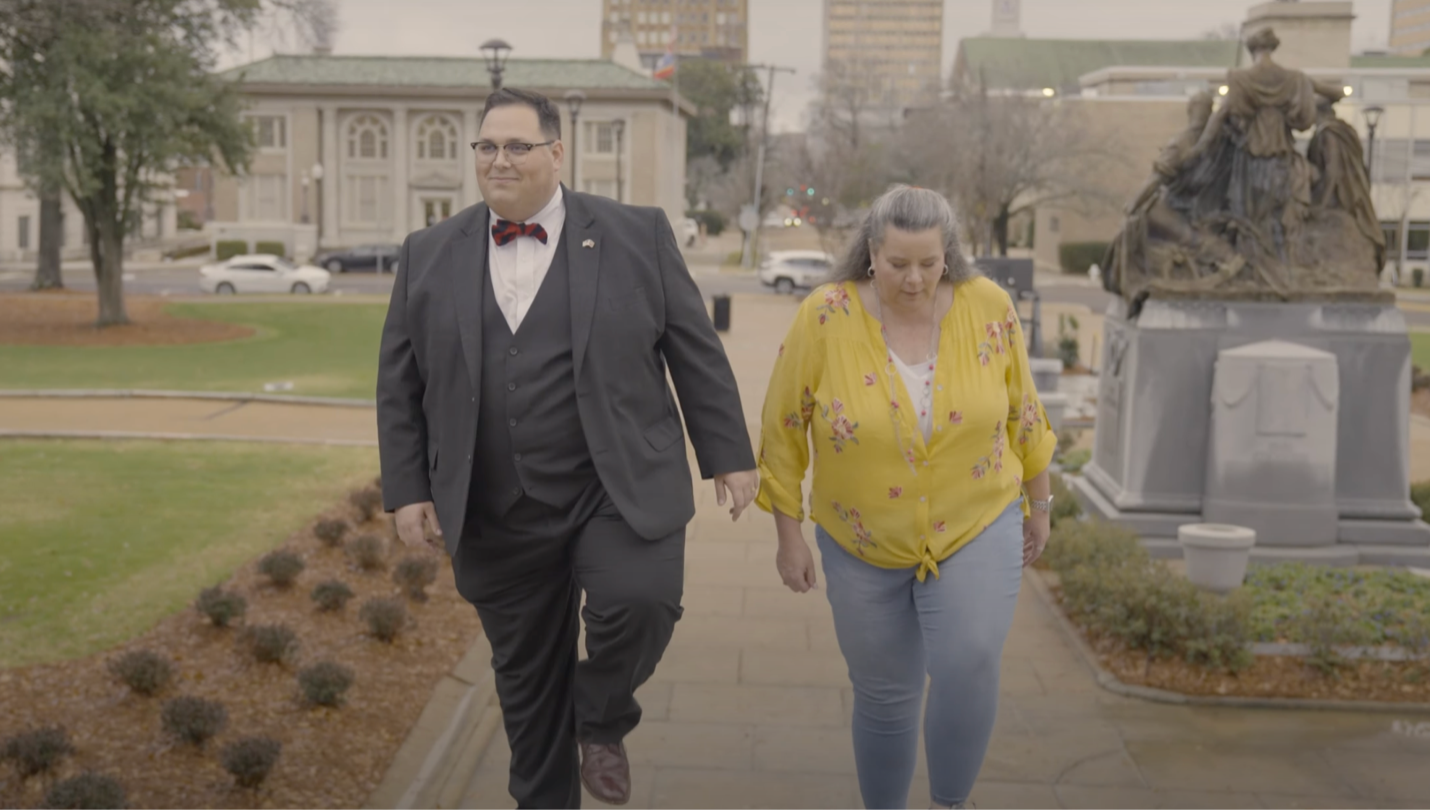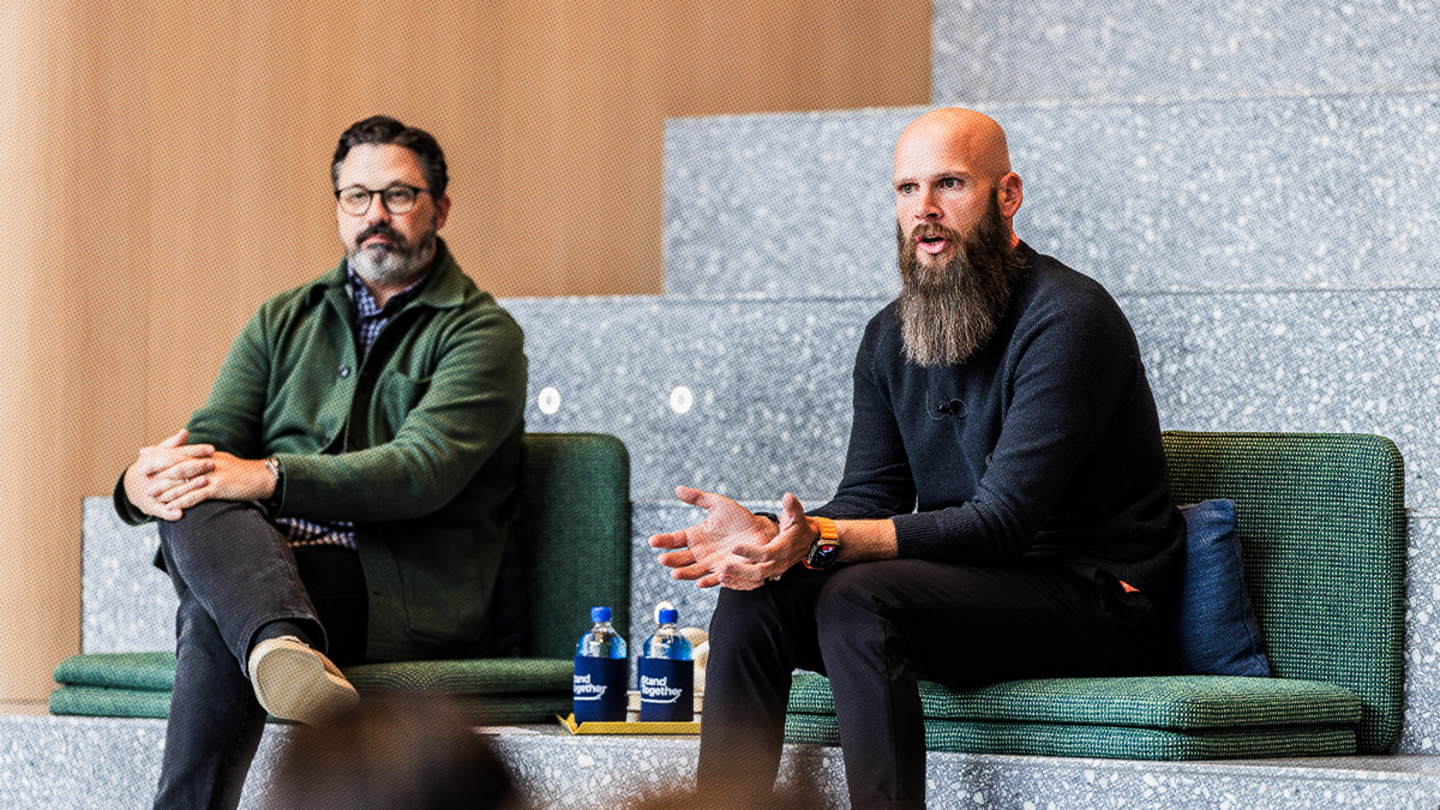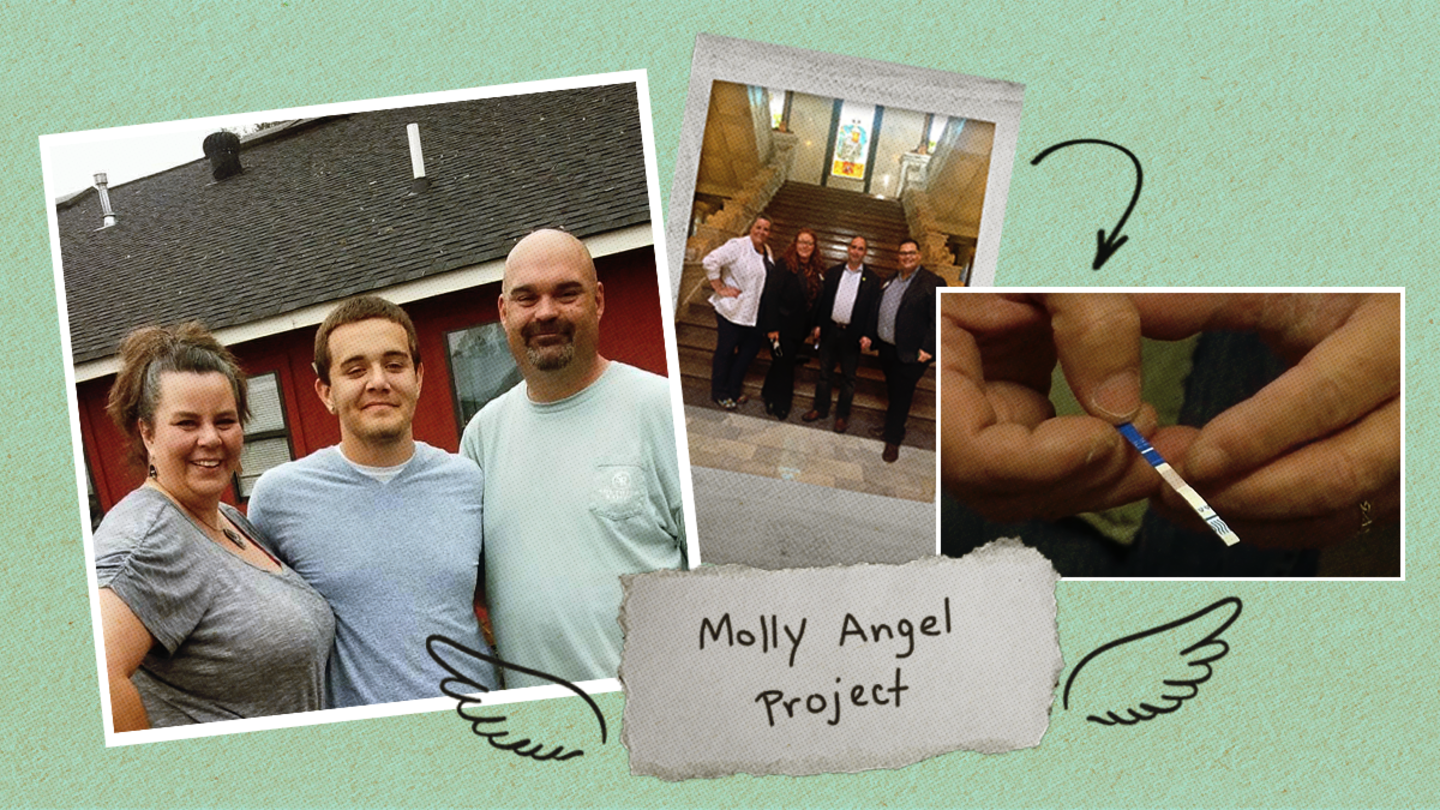Whenever she heard frightening stories about adolescent drug use, Christi Berrong-Barber thought, “That could never happen to us.” Her son Chance was a good kid from a good family from the small town of Brandon, Mississippi. He was popular, loved football, and so smart he would graduate from high school a year early.
Then came a phone call. A friend saw Chance getting arrested on the side of the road. Arriving at the scene, Christi saw her 16-year-old son in the back of a police cruiser in handcuffs. An officer explained that Chance had been caught with an opioid more potent than heroin. “I just knew,” she said, “that our life would be different from now on.”
After Chance was released with a warning, he tried to convince his mom he had only been experimenting with a friend. But she knew better. A trained nurse and administrator at a local clinic, she can tell when someone is not well. The next few years were “an absolute nightmare,” Christi said, as her son plunged into addiction. He disappeared for weeks, overdosed at least four times, and lost so much weight he was almost unrecognizable. Despondent, Christi went to a local funeral director to make arrangemenets, certain the end was near.

But Chance had not bottomed out yet. In December 2018, he got high and attacked a man who had stolen money from him. The assault landed him a 30-year prison term. Christi does not make excuses for her son or dwell on the harsh sentence. She is just glad Chance is still alive and committed to turning his life around. “I would much rather pick up the phone and listen to his voice than to have his ashes sitting on my mantle.”
Remarkably, none of these events broke Christi Berrong-Barber. Rather, they transformed her from an ordinary small-town mom into a fierce warrior to reform drug laws that make it harder for families like hers to battle the scourge of addiction that has mushroomed over the past decade. The rate of drug overdose deaths in the United States nearly quadrupled between 2002 and 2022, according to the Centers for Disease Control, with synthetic opioids like fentanyl driving much of the increase.
When she began her activism, Christi admitted with a self-deprecating laugh, she had no idea what she was doing. But with critical guidance from the nonprofit advocacy group Americans for Prosperity (AFP), she quickly learned how to organize and take action.
She began navigating the halls of power in Mississippi’s state capital of Jackson to call attention to substance-abuse issues and took part in a wider lobbying effort that helped score one victory after another, including decriminalizing fentanyl test strips — a huge win. Her story shows the astonishing progress that can happen when the people closest to a problem become inspired to rise up and take a stand for a better world.
By helping people facing addiction, ‘Mama C’ spots problems in the system
Early on, Christi was seen as a mother figure in her son’s underground community of people with drug dependencies. “Chance believes that his mama can fix anything, so he would pass out my phone number,” she said. At all hours of the night, “Mama C,” as they called her, would get phone calls from strangers who needed overdose medication, a ride to rehab, or sometimes just a heart-to-heart talk.

Even after Chance was incarcerated, Mama C. remained on call. That allowed her to see how widespread the drug epidemic had become and to figure out which laws and regulations were exacerbating the problem most. She argued in a newspaper opinion article that authorities should expand existing Good Samaritan laws to protect from prosecution anyone who calls emergency services to help someone in trouble. Later, a bill to accomplish that became law in Mississippi.
As fentanyl’s presence in the drug supply led to a surge of overdose deaths, Christi moved on to a bigger problem: The scarcity of naloxone, a highly effective overdose medication, also known by the brand name Narcan. The consequences have been tragic. “I had a great time in high school and college and made really dumb decisions,” Christi said. “But the dumb decisions I made couldn't kill me as easily as the dumb decisions kids can make now. Now, just one mistake can be your last decision ever.”
Though naloxone was technically available in Mississippi without a prescription, numerous barriers existed: It was expensive, frequently sold out, and required buyers to divulge potentially incriminating personal information like names and addresses.
Taking matters into her own hands, Christi obtained a shipment of naloxone from the Mississippi Department of Mental Health and began distributing it to her informal network of people with substance use disorders.
When Christi told her son what she was doing, he said, “Mama, please do this in Molly’s honor.” His high-school sweetheart, Molly Angel, had recently died of a fentanyl overdose at age 19. Inspired, Christi formally established the Molly Angel Project to prevent such senseless deaths by making naloxone more widely available.
Sign up for the Stand Together newsletter and get stories, ideas, and advice from changemakers to help you tackle America’s biggest problems.
Christi and AFP succeed in making fentanyl test strips legal
Still, it didn’t seem like enough. Hoping to make a bigger impact, Christi attended a book club meeting where members discussed “Chasing the Scream: The First and Last Days of the War on Drugs” by Johann Hari. There Christi met Cade Yates of AFP. “She was just like a beaming glow of happiness and joy,” Yates recalled. “But she was also able to openly share raw, vulnerable parts of her life.”
Yates invited Christi to check out his organization’s Grassroots Leadership Academy (GLA), which gives activists like Christi the tools to bring their game to another level. It turned out to be just what she needed. Christi had been basically making it up as she went along, working instinctively and mostly alone. In regular GLA sessions over several weeks, she learned specific techniques for how to approach and talk to government officials and gained confidence that she could navigate the legislative process.
A big “Aha” moment came when GLA leaders discussed the importance of “The Why” – meaning “Why is this issue so important to you?” How can one person’s story transcend the dry facts and touch people’s hearts? “In polite society, we’re raised to not overshare because we think people don’t care about our personal struggles,” Christi said. “But here it’s exactly the opposite. You engage people because of your personal struggles, because you are standing up to say, ‘This is happening to hundreds of moms every day.’”
In April of 2022, Christi attended an event where she met AFP’s Mississippi State Director Starla Brown. “Christi was very passionate about making sure no harm comes to people from their addiction until they can get the help they need,” said Brown. So, when Brown noticed a bill being introduced in the state legislature that would decriminalize fentanyl test strips, she asked Christi if she would like to get involved. Her reply: “Absolutely!”

At first glance, the legislation didn’t appear to have much of a chance. At the time, test strips that can detect the presence of the potent drug fentanyl in samples of illicit substances were classified as “drug paraphernalia.” Possession was punishable by up to six months in jail. For the bill to succeed, advocates would have to persuade lawmakers that the technology does not, in fact, encourage drug use but could save lives.
Working closely with Yates, Christi identified the key players in the state House and scheduled meetings. When she appeared wearing her nurse’s scrubs, lawmakers saw an ordinary middle-class parent they could relate to. One of her most effective lines was, “When your daughter goes to a bar and thinks somebody spiked her drink, should she be able to test it to see if it’s safe? Because that happens every single day.”
It turned out to be a perfect combination of strengths. AFP provided the lobbying expertise while Christi supplied the gritty realism of a family struggling with the trauma of addiction. Neither would be as effective without the other. Together, they made a powerful team.
In January 2023, Brown was surprised to learn that the fentanyl test strips bill was actually moving quickly through the legislature. The logic of decriminalization, combined with real-life stories by Christi and others, was proving too powerful to resist. Ultimately, the measure became law.
“I don't cry often, but I cried at work the day that bill passed,” Christi said. She went out to dinner to celebrate.
Christi continues her fight to help other families
It’s too early to quantify the impact of Christi’s (and others’) recent activism, but early indications are positive. Opioid-related deaths decreased by 8.96% in the third quarter of 2023 compared to the same period a year earlier, according to the Mississippi Prescription Monitoring Program. A big contributor to that drop, say officials from the Mississippi Bureau of Narcotics, are steps like better access to the naloxone medication.
Today, Christi is moving on to new challenges. She wants to make naloxone available at schools throughout the state, beginning at the middle school level. She hopes to expand the number of dangerous substances that test strips can detect, such as the sedative xylazine (known on the street as tranq) that do not respond to naloxone.
At every turn, she is getting insights from Chance, who continues to battle his addiction, even in prison. “He still has to make a decision every day whether he's going to fight to remain sober or give in to his addiction,” she said.
Chance and his mother are looking forward to the day, 14 years from now, when he can apply for early release. By then, he will be 39 years old and will have spent about half his life in prison. Until then, Christi said, “The Molly Angel Project gives him a purpose and something to fight for. He feels like he is a part of something bigger than those concrete blocks he looks at every day.”
Until then, Christi will continue her crusade for drug-law reform. “I’m constantly shocked that this nobody mom from Podunk, Mississippi can actually make a difference,” she said. “When you’re confronted by such big problems, it's a pretty great feeling to know that you don't have to just roll over and take it.”
***
Part of the Stand Together community, Americans for Prosperity believes freedom and opportunity are the keys to unleashing prosperity for all. For more information on solutions, visit AmericansforProsperity.org.
Learn more about Stand Together’s efforts to build strong and safe communities and make the economy work for all. Explore ways you can partner with us.

Here are some issues the Department of Government Efficiency could target.

Only by using AI in real-world scenarios can we understand its capacity to address complex challenges.

Credit scores don’t reflect the whole person. Here’s one way to change the narrative.

Fear of change is nothing new, but how we respond to this moment really matters.
